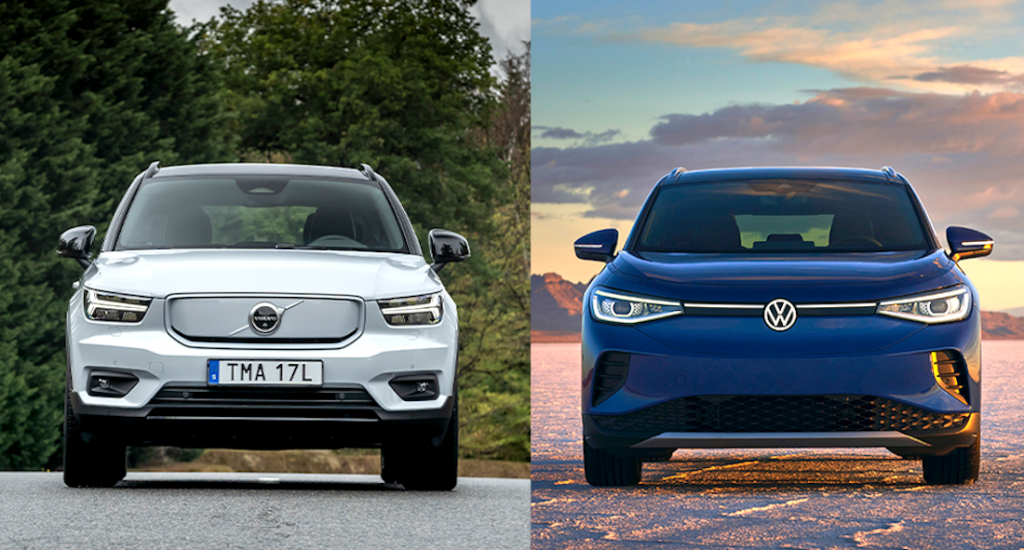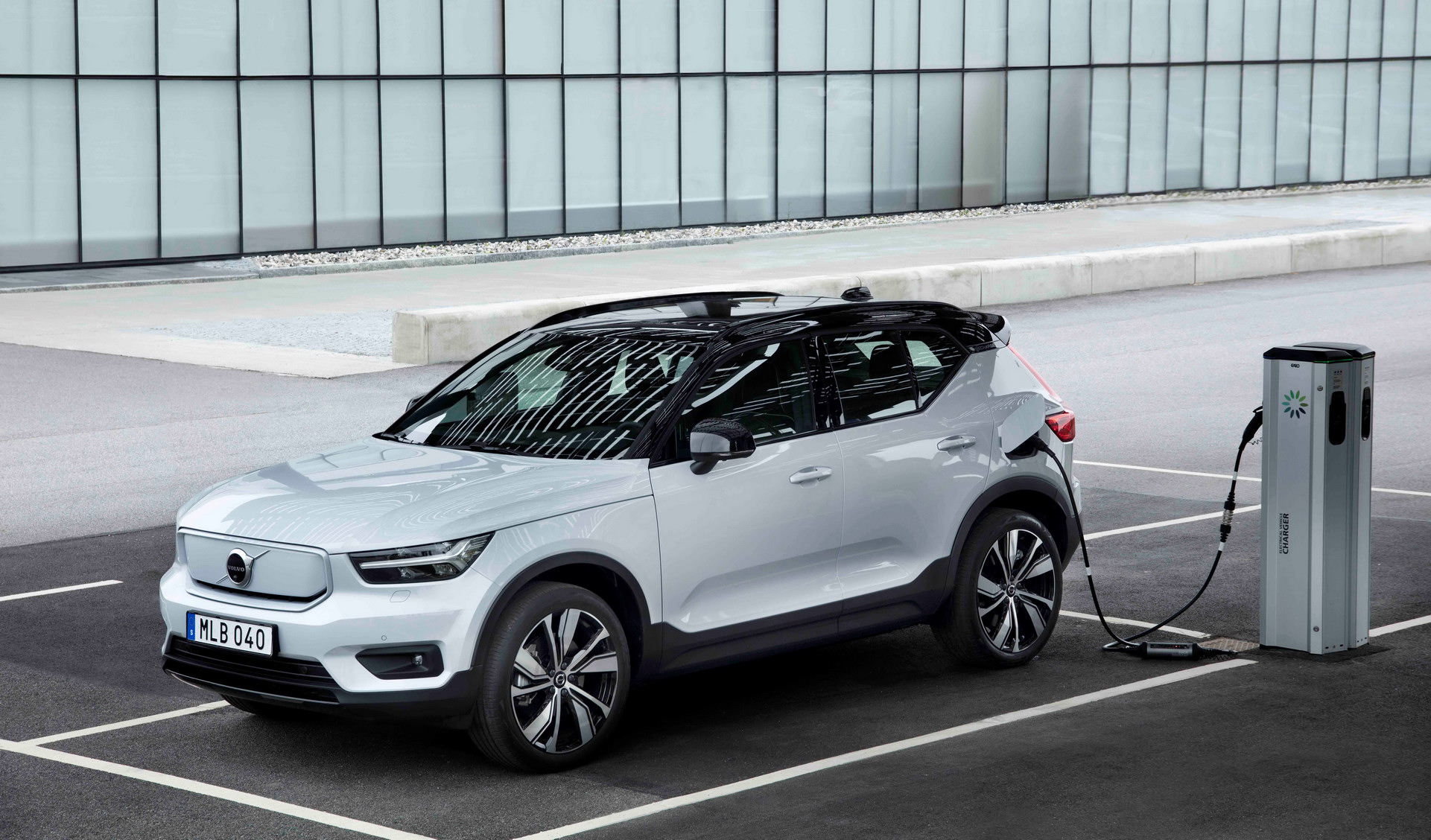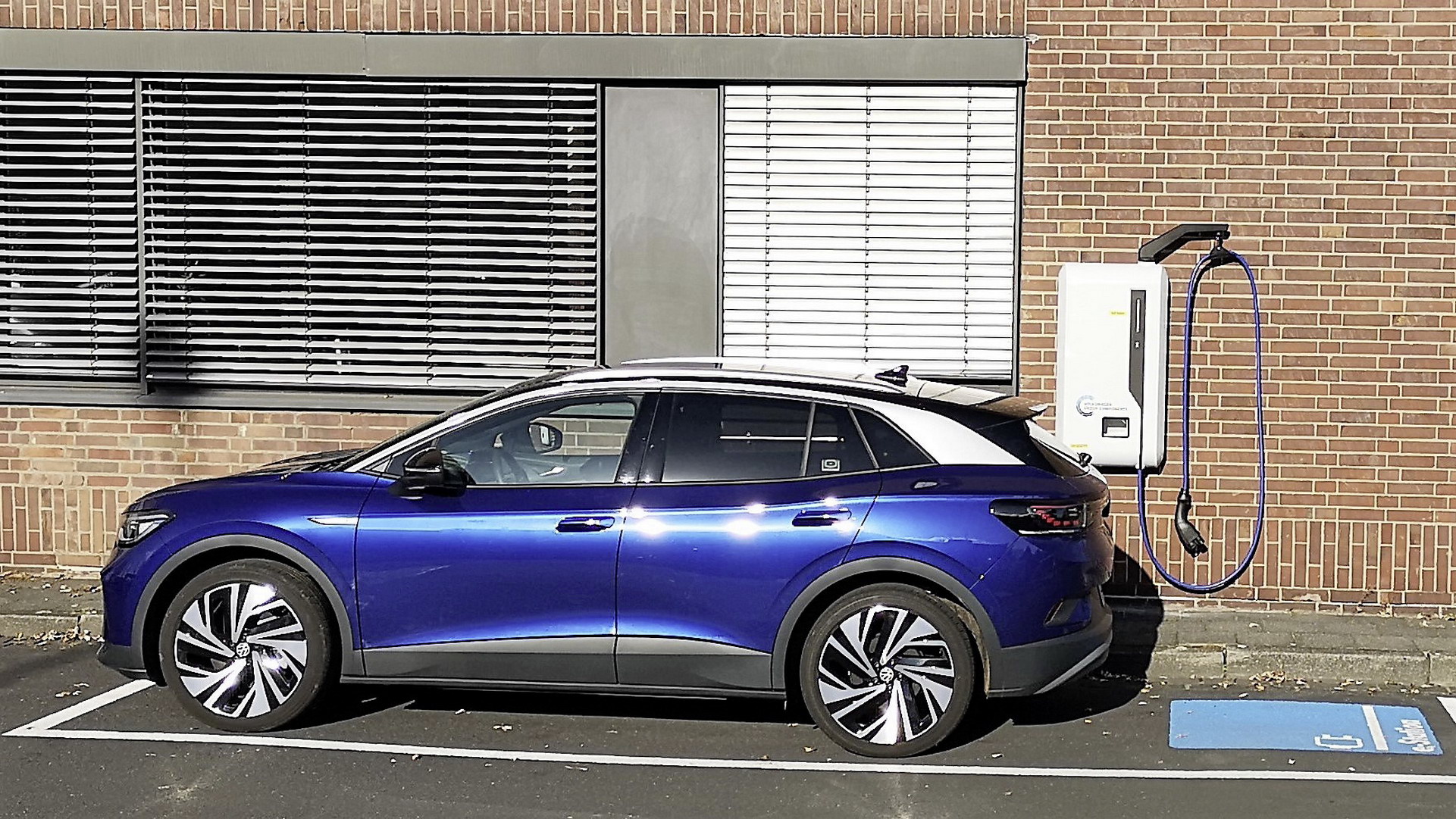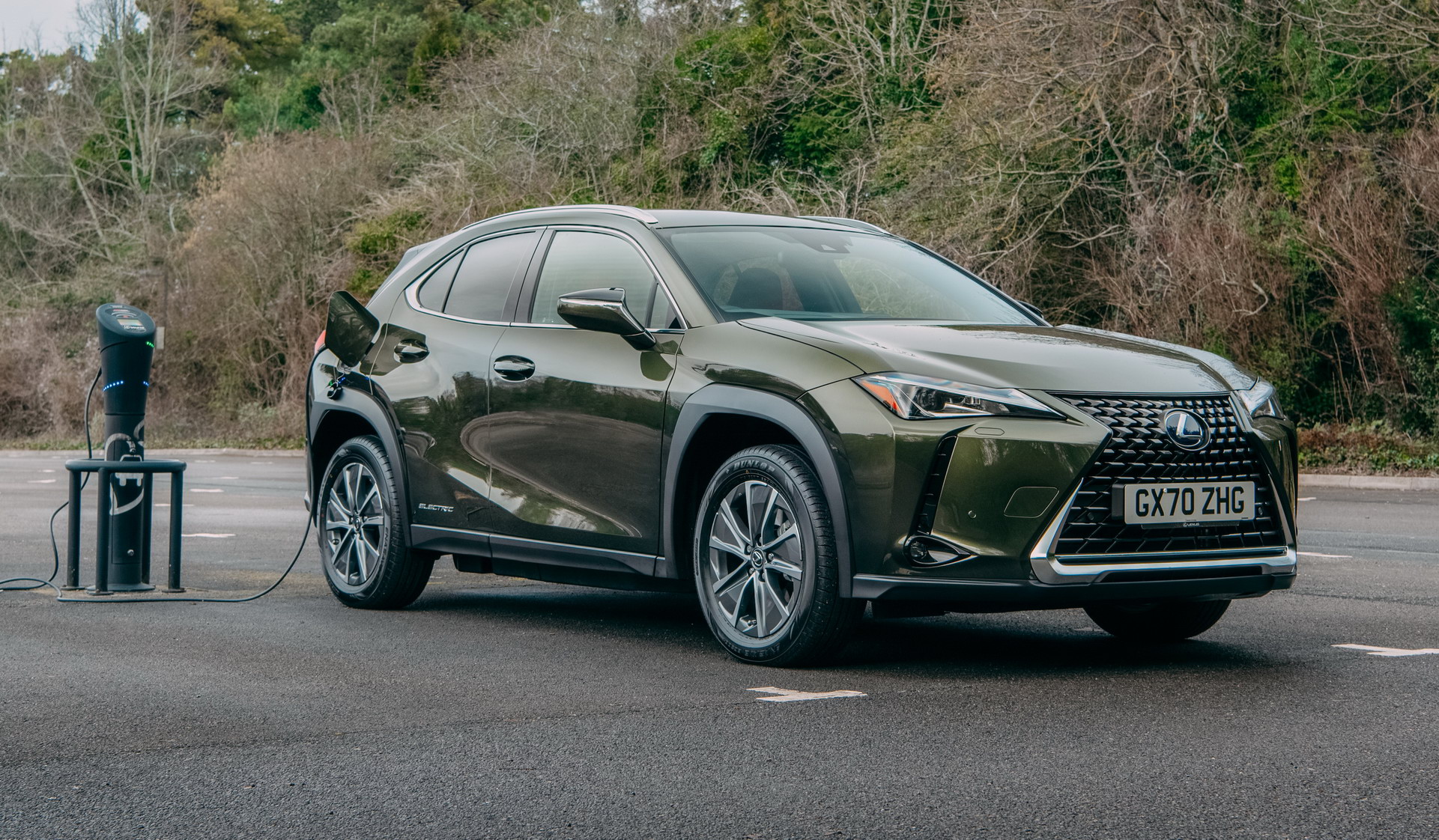Volvo and Volkswagen are switching on to electric power and we’ll be climbing behind the wheels of the XC40 Recharge and ID.4 SUVs in a couple of days to find out if Tesla should be worried.
The XC40 Recharged is Volvo’s first electric vehicle, period, and the ID.4 is Volkswagen’s first electric SUV. Both are compact crossover-style SUVs, but the Volvo is both more expensive and more powerful.
Related: We’re Driving The 2021 Ford Mustang Mach-E, Anything You’d Like To Ask?
Like twice as powerful. The XC40 sends a serious 402hp to its four wheels thanks to an electric motor connect to each axle, and can crack 62mph (100km/h) in 4.7 seconds. It can cover 208 miles (335 km) on a charge and costs $53,990 before any tax credits are applied – though at £53,155 in the UK the XC40 is too expensive to qualify for any grant in Britain.
The ID.4, meanwhile, only serves up 201hp, and that goes exclusively to the rear wheels, while zero to 62mph (100km/h) takes a much more leisurely 8.5 seconds. That’s according to Volkswagen – we’ll be sticking our Racelogic VBOX timing gear to the ID.4 to see if we can’t improve on VW’s often conservative figures.
On the plus side, the ID.4 is substantially less expensive: prices start at $39,995 (£40,800 in UK) before tax credits, and its 250-mile (402 km) range is better than the Volvo’s.
So they’re not exactly direct rivals – a hotter ID.4 with enough performance to worry the XC40 comes later, as does a cheaper, slower version in some markets – but we thought it’d be interesting to drive them back to back to see if the Volvo is worth the extra money, and if the Volkswagen feels embarrassingly slow with half as much power.
Want to know anything about either car? Let is know in the comments below.
We’re also driving the facelifted 2022 Hyundai Kona Electric and battery-powered Lexus UX at the same time, though those come with a couple of caveats. The Kona is the lower-powered 136hp version of the two Konas available in Europe, but America will only get the 201hp version. And Lexus doesn’t offer the 300e electric version of its UX compact SUV in the US at all.
Do you think Lexus and Hyundai should change theirs mind and brings those cars to the US? Again, let us know in the comments below.







